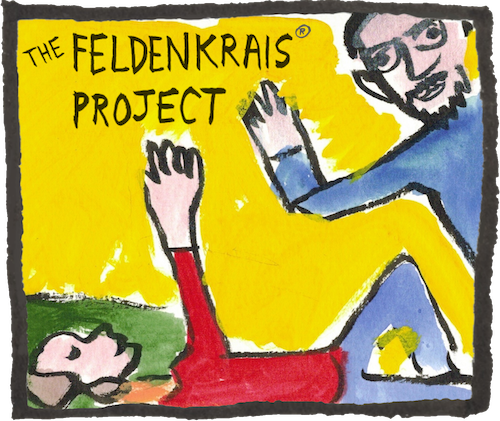Position: back-lying
64m
Some Fundamental Properties of Movement (Patrons)
Lying on the back and later on the front with the limbs in a large letter X shape, learning to lengthen and lift the limbs by organizing from the torso, discovering a pressing foundation, and inhibiting unnecessary shortening and tightening responses related to anticipated difficulty.
61m
Advanced Twisting Part 2
Back-lying, using the tilted crossed legs as a constraint to help learn more suppleness and better upright organization of the spine, chest, shoulders, and neck, with awareness of and sensitivity to one's own biases.
60m
Advanced Twisting Part 1
Back-lying, tilting the crossed legs to organize the flexors and extensors, and eventually using the tilted crossed legs as a constraint to help learn more suppleness of the spine, chest, shoulders, and neck.
59m
Spine Like a Chain, with a Bias
Lying on the back, knees bent. This lesson explores the basic human function of the legs pushing the pelvis forward into the world. It creates opportunities to better sense and articulate the spine and ribs, and organize the flexor and extensor muscles, all within the frame of discovering and using your natural primary spinal bias.
64m
Bending Sideways
Framed with standing explorations of shifting weight, this back-lying lesson explores important and often underrepresented functions (in our self-image of movement) of bending sideways, and connects them to improving balance, and our use of the hips, spine, chest, neck, head, and functions of the legs and feet.
59m
The Buttocks
Lying on the back and front, and various kneeling and standing positions. Exploring and improving the use and awareness of the buttocks in relationship to the pelvis, legs, feet, belly, and spine. Once Feldenkrais fans are ready for this lesson it's a profoundly important one for better posture, walking, and running. See the Comfort & Configuration tab.
61m
Chanukia, the Candle Holder Lesson
Mostly in back-lying, knees bent. Using a precise configuration of the shoulders and elbows to mobilize and build awareness of movements and relationships of the shoulders, shoulder blades, clavicles, sternum, spine, head, pelvis, and the whole rib structure.
67m
The Anti-Gravity Lesson
Back-lying, often knees bent. Some modified side-lying and brief front-lying. We can’t beat gravity, so let’s get organized to oppose it effortlessly with bones instead of muscles. Pushing and pulling movements from the feet, moving you up and down your mat, are throughly explored, as the horizontal floor substitutes for the plumb line of gravity.
60m
Breathing from Head to Heels
Various positions, about half back-lying. Experiments with the breath mechanism, learning how it relates to the head, spine, and pelvis, and integrates into the length of the heels for standing. Uses paradoxical breathing and "see-saw" breath games.
60m
Your Navigational Pelvis
Back-lying, knees bent. A unique take on the classic Feldenkrais pelvic clock lesson. Learn how the interaction of the feet with the ground relates to the pelvis moving in all directions. Includes movements designed to integrate the spine, head, and eyes, all toward grounding and organizing the whole self for better walking and an easier upright life.
